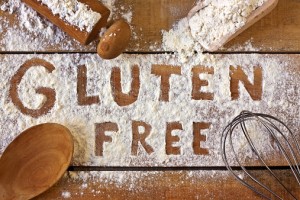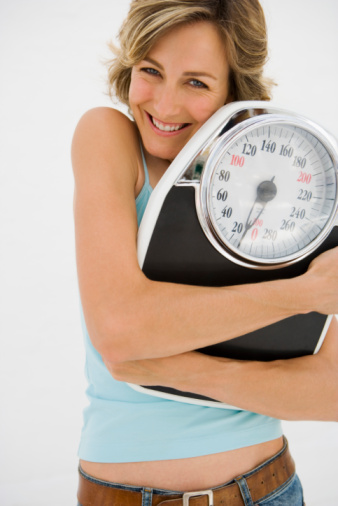Why Can't I Lose Weight?
Clearly, a key concern on the Physical Path is our ability to maintain our weight, or even lose it. I’ve written about various exercise regimes, but today, I want to look at a very basic concept; metabolism. What is this, and why does it matter so much? How can I measure my base metabolism rate and how can I improve it? Hi, I’m Steve Beaman and welcome to the Physical Path.
I love to eat so it’s no wonder that absent exercise, I tend to gain weight. But you know I’ve found, for me, almost regardless of how much I eat, as long as I stop when I’m full, I don’t gain weight, I stay steady at about 190 pounds. Yes, I’ve gone over that, but I always seem to settle on that. Why? Why do I seem to be able to do that while others seem to just gain weight?
The basic process that monitors your body’s weight is metabolism; that is the rate at which your body consumes material and changes it into energy, fat stores, etc. There are formulas that exist to calculate your base metabolism rate. Rather than giving you the math, I’d rather you just visited www.webmd.com and checked it out for yourself. There are different variants on the formulas but there all pretty similar. My base metabolism rate is 2332 calories per day. This means that based on my height, weight and activity level, I generally burn around 2,332 calories each and every day just living. Keep in mind that one pound equals approximately 3,500 calories either above or below that rate; to gain or lose weight. Think about that for a minute. That means if I want to lose one pound over 10 days I need to either increase my metabolism to 2,680 calories per day which I can do by working out, or I cut my caloric intake to 2000 calories per day. Either solution would cause me to lose one pound in 10 days. So if I wanted to lose 10 pounds, I’d have 100 days of this effort.
Other things to note as you journey on your physical path. Food you consume processes differently in the body, which is common sense of course. In terms of metabolism, proteins process with a higher metabolic rate than do carbohydrates or fats. What that means is your body actually burns more calories digesting proteins than it does carbohydrates or fats. So, an easy trick to boost your metabolism rate is to switch from eating fats to eating more proteins. So instead of snacking on potato chips, how about snaking on beef jerky!
Now there’s another part of this you should remember. I wrote last week about sugar, remember that. Also, earlier in this article I wrote about my tendency to stay steady state with my weight even if I don’t exercise. The reason for that is that I naturally tend not to overeat. What does that have to do with anything? Well, in my article about sugar I discussed the brains internal mechanism that tells us when we’ve eaten enough, do you remember that? Well, my general diet includes no soda, and little amounts of sugar, that’s just how I eat. So my brains satiation sensor is triggered by what I’m eating, unlike fructose based foods like chips, pops, and all that. So, my diet is generally a higher metabolic rate diet like tuna fish and I tend not to overeat because I’m eating proteins not sugars. You should keep this in mind as you think about what you’re eating.
Remember, real help for real people comes from educating and empowering people with knowledge so they can improve their own lives. You and I are responsible for our own physical paths, and I hope insights like this helps to make yours better!
-
How To Get Long Term Results From Weight Loss
It isn’t surprising anymore to see someone so thin now and then overw
-
Natural Weight Loss Over 40? I Have An Answer, Although It Will Surprise You
Who would have ever thought that a 43 ye
-
Healthier Eating Routines To Lose Excess Weight
Many men and women think of food as an adversary especially when
-
7 Amazing Yoga Exercises To Flatten Tummy Quickly
In addition to yoga’s ability to gently exercise the body a
-
End The Weight Gain: Try Weight Loss Solutions That Last
One of the many things that discourage people with weight loss proble
-
Hazards In The Household: Microwaves, Air Fresheners And Water Bottles
Microwaves Almost every house and most places of employment own and o
- DON'T MISS
- How To Control Rising Diabetes Blood Sugar?
- Free Tips To Have Six Pack Abs Fast - Keep Fit And In Good Health
- Consumer Health Awareness Explains Why Eating Right Works
- 10 Easy Ways to Lighten Up Any Recipe
- 10 Steps to a Bikini Body
- Extending Your Workout Attitude to the Rest of Your Life
- Burn Body Fat Fast - What You Don't Know?
- How Can Positive Affirmations Help You Loose Weight?
- Get Off Those Unwanted Pounds By Following This Great Advice!
- Comprehensive Details Regarding Healthy Weight Loss




